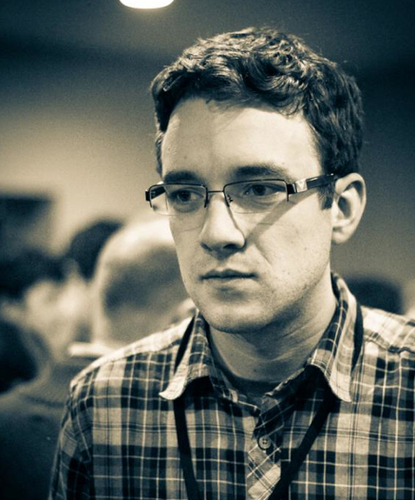Who Are the Millennials?
Teenagers, twenty- and thirty-somethings have been dubbed the Millennial Generation, or simply Millennials. But what does it mean? And how old is too old to be a Millennial?
Generation Y Definition
The term Millennials generally refers to the generation of people born between the early 1980s and 1990s, according to the Merriam-Webster Dictionary. Some people also include children born in the early 2000s.
The Millennial Generation is also known as Generation Y, because it comes after Generation X — those people between the early 1960s and the 1980s. The publication Ad Age was one of the first to coin the term "Generation Y," in an editorial in August 1993. But the term didn't age well, and "Millennials" has largely overtaken it. But the terms basically mean the same thing.
Millennials characteristics
Millennials have been characterized in a number of different ways. On the negative side, they've been described as lazy, narcissistic and prone to jump from job to job. The 2008 book "Trophy Kids" by Ron Alsop discusses how many young people have been rewarded for minimal accomplishments (such as mere participation) in competitive sports, and have unrealistic expectations of working life.
A story in Time magazine said polls show that Millennials "want flexible work schedules, more 'me time' on the job, and nearly nonstop feedback and career advice from managers." Another Time story in May 2013, titled "The Me Me Me Generation," begins: "They're narcissistic. They're lazy. They're coddled. They're even a bit delusional. Those aren't just unfounded negative stereotypes about 80 million Americans born roughly between 1980 and 2000. They're backed up by a decade of sociological research." The article also points out that Millennials may be simply adapting quickly to a world undergoing rapid technological change.
A 2012 study found Millennials to be "more civically and politically disengaged, more focused on materialistic values, and less concerned about helping the larger community than were GenX (born 1962-1981) and Baby Boomers (born 1946 to about 1961) at the same ages," according to USA Today. "The trend is more of an emphasis on extrinsic values such as money, fame, and image, and less emphasis on intrinsic values such as self-acceptance, group affiliation and community." The study was based on an analysis of two large databases of 9 million high school seniors or entering college students.
They have also been described in positive ways. They are generally regarded as being more open-minded, and more supportive of gay rights and equal rights for minorities. Other positives adjectives to describe them include confident, self-expressive, liberal, upbeat and receptive to new ideas and ways of living.
Though viewed as more liberal, some Millennials are bucking the trend. A study published March 31, 2017 by the Council on Contemporary Families found that high school seniors increasingly believe that the man should be the bread-winner in a relationship and a woman should care for the home. "It's been a steady reversal," said study co-author Joanna Pepin, a doctoral candidate in sociology at the University of Maryland.
In addition, it seems that this generation may be having less sex that any other generation before it. In a survey of more than 26,000 American adults, about 15 percent of Millennials between 20 and 24 reported having no sexual partners since the age of 18. Only 6 percent of GenXers (people born in the 1960s) could claim the same. The Youth Risk Behavior Survey by the Centers for Disease Control and Prevention in 2016 also found that teen Millennials were less sexually active that previous generations.
Millennials are also more likely to use public libraries than other generations, according to the Pew Research Center.
Generation Me
There is a spirited, if not tiresome, debate about whether Millennials are self-entitled narcissists or open-minded do-gooders; surely the truth lies somewhere in-between. Generally, however, there does seem to be more of an emphasis on the self than in previous generations, one reason why this group has been called Generation Me. Research presented at the 2016 annual meeting of the Society for Personality and Social Psychology (SPSP) in San Diego found that Millennials themselves do believe that they are more narcissistic that previous generations, but they don't like it. Also, the uptick in narcissism is only very slight when compared with other generations.
"We're not talking about two generations ago, people were just completely selfless, and in this generation we're trying to kill each other to watch the next season of something on Netflix," Joshua Grubbs, a doctoral candidate at Case Western Reserve University in Ohio. [Millennials See Themselves As Narcissistic, Too (And It Bothers Them)]
The self-centered life approach may be due to the rise of individualism in society. "There is a very consistent and reliable trend where all indicators of individualism [have] been on the rise over the course of the last 100 years," Igor Grossman, a psychologist at the University of Waterloo, told an audience at the SPSP meeting.
Other scholars have pointed out that the attempt to make generalizations about an entire generation is a futile effort. Further, some have suggested that discussion of "Millennials" tends to focus on mostly white youth from suburban areas, ignoring the unique experience of immigrants and minorities.
Additional reporting by Alina Bradford, Live Science contributor.
Additional resources
Sign up for the Live Science daily newsletter now
Get the world’s most fascinating discoveries delivered straight to your inbox.











